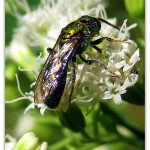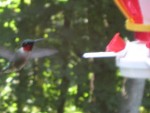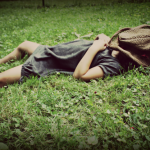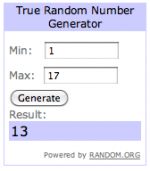Allow me to begin at the beginning.
Once upon a time, some newspaper described a certain class of citizens as “YAWNs”- Young and Wealthy but Normal. I don’t know how it started and truly I don’t care, but this article sums these citizens up as those who are “socially aware, concerned about the environment and given less to consuming than to giving money to charity.”
It also hastily points out that while these people may, at first glance, seem immensely boring, they really aren’t, given that they are attempting to become superheroes and change the world.
(Personally, I loved that they were so quick to mention the boring factor, as I have often pointed out that out of all the boring bores in Boringtown, I am the Mayor of Boredom, Captain of Boringness, and also not very interesting. )
But hey, there are lots of people out there who want to change the world, and not all of them are young, or wealthy, or even normal, I guess, and I’ll bet at least a handful of them are not nearly so yawn-inducing as I am. So a search for a new acronym was born.
The end result was a bushel basket of APLS: Affluent Persons Living Sustainably. Many of the persons this acronym presumably applies to, myself included, took issue with being perceived as being affluent; but put into the perspective of the Global Rich List, our relative affluence is undeniable. Check it out for yourself.
An APLS blog was born, an online community with a common goal: to change the world. And each of us who has opted to be a part of that change was asked the question: What does living sustainably mean to you? All were invited to submit their answer to the carnival.
I was going to pass on this inaugural carnival, not having a ready answer, a bit intimidated by the well-thought-out and passionate responses I came across on other blogs. And also, my schedule is a bit tight with all this important late-sleeping, sun-bathing and shell-collecting that I have been doing.
Then I came across a well-worn copy of Mrs. Frisby and the Rats of NIMH.
Am I the only one who loved this book as a child? A group of rats escapes a research facility after being injected with a solution that causes them to become incredibly intelligent and long-lived. They go to live in a rosebush on a farm, tapping into the electricity and the water main.
At one point, the rat leader, Nicodemus, recounts a story he read in a book of essays:
It was about a woman in a small town who bought a vacuum cleaner. Her name was Mrs. Jones, and up until then she, like all her neighbors, had kept her house spotlessly clean by using a broom and a mop. But the vacuum cleaner did it faster and better, and soon Mrs. Jones was the envy of all the other housewives in town- so they bought vacuum cleaners, too.
The vacuum cleaner business was so brisk, in fact, that the company that made them opened a branch factory in town. The factory used a lot of electricity, of course, and so did the women with their vacuum cleaners, so the local electric power company had to put up a big new plant to keep them all running. In its furnaces the power plant burned coal, and out of its chimneys black smoke poured day and night, blanketing the town with soot and making all the floors dirtier than ever. Still, by working twice as hard and twice as long the women of the town were able to keep their floors almost as clean as they had been before Mrs. Jones ever bought a vacuum cleaner in the first place.
…the reason I had read it so eagerly was that it was called “The Rat Race”- which, I learned, means a race where, no matter how fast you run, you don’t get anywhere. But there was nothing in the book about rats, and I felt bad about the title because, I thought, it wasn’t a rat race at all, it was a People Race…
Taking a hard look at themselves, the rats realize they themselves have joined the People Race. They lived comfortably by stealing running water, electricity and food; even their air was drawn underground by a fan they had stolen, and ran off the stolen electricity.
A “feeling of discontent settled” upon them, and the rats fought it with busywork: “building more things- bigger rooms, fancier furniture, carpeted hallways, things we did not really need.”
Our life [was] so easy that it seemed pointless. We did not have enough work to do because a thief’s life is always based on someone else’s work.
The rats then develop a Plan that would permit them to live without stealing. To grow their own food, to plow their own land. They knew and accepted that the beginning of this new way of living would mean hard times. They had grown soft, complacent. There were those that were reluctant and those that were scared, but they were committed, ready to try. A community bound by a common purpose.
So what does living sustainably mean to me?
Today, thanks to the rats of NIMH, it means dropping out of the People Race. It means not living by stealing– from the earth that we hold in common, from our children, from future generations.
It means needing less and giving more. It means sowing more than I reap. And it means trusting others even when I am apprehensive and skeptical, even when the road is hard.
Becoming a community. Working together towards a common purpose. Changing the world.
P.S.—
Mrs. Frisby and the Rats of NIMH, the novel, is better than the movie, The Secret of NIMH
; more nuanced and full of subtext. BUT the movie is excellent too and if you rent movies through Netflix, you can watch it right now this very second on your computer! I love technology!












Leave a Reply